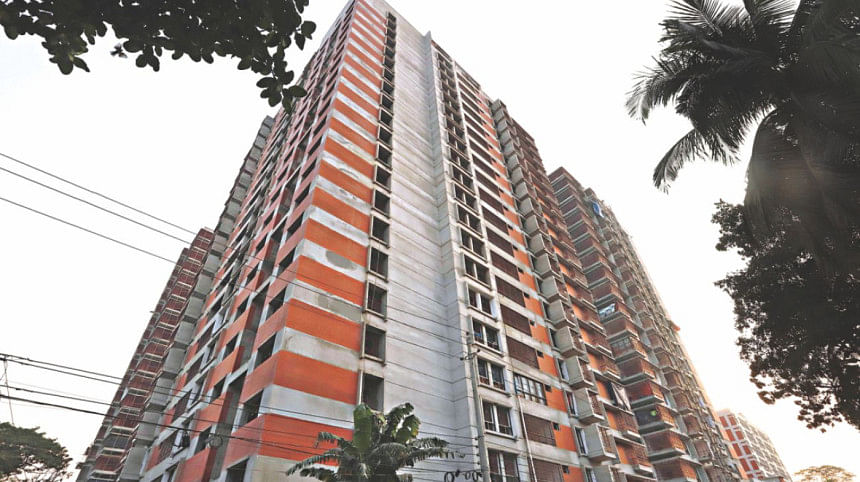Black money may still find its way into real estate

The interim government is likely to retain the opportunity to invest undeclared wealth, commonly known as black money, in the real estate sector, albeit with a sharp increase in associated tax rates.
Finance Adviser Salehuddin Ahmed is likely to announce the new rate, which may potentially see a five-fold rise from current levels, while unveiling the national budget for the fiscal year 2025–26 today.
"The government wants to discourage the investment of black money in real estate and bring tax rates closer to market values," a finance ministry official said, preferring anonymity.
The official added that the facility may continue with higher penalties, as realtors requested support for the struggling sector during the ongoing economic downturn.
Under the Income Tax Law 2023, the current tax on buying apartments with black money is calculated on a per-square metre basis.
At present, individuals investing black money in the real estate sector must pay the highest per-square-metre tax in Dhaka's upscale areas.
The rate is Tk 6,000 per square metre for any built property—such as a house, flat, or apartment—and Tk 15,000 per square metre for land in all mouzas under the jurisdictions of Gulshan, Banani, Dhanmondi, Motijheel, Tejgaon, Wari, Tejgaon Industrial Area, Ramna, Shahbagh, Kafrul, New Market, Paltan, and Kalabagan thanas.
Officials say the same method will continue, but with higher rates—ranging from 3 to 5 percent depending on the location.
The scope for whitening undisclosed money will also be limited to specific areas such as buildings, houses, flats, floor space, and land.
Last year, the Awami League government, which was toppled by the student-led uprising on August 5, proposed a provision stating that no authority could question whether a taxpayer pays tax at fixed rates for immovable properties such as flats and land, and 15 percent tax on other assets, including cash, irrespective of the existing laws of the country.
The scope to whiten black money was scheduled to end in June 2025.
Although the interim government scrapped the provision in September last year, the opportunity to whiten black money through real estate was retained.
Besides, the government may reduce capital gains tax rates on land transfers in the upcoming budget to encourage property registration at the actual selling price and prevent the generation of undisclosed income in the hands of land sellers.
"The rates, previously 8 percent, 6 percent, and 4 percent based on location, may be lowered to 6 percent, 4 percent, and 3 percent respectively," according to the official.
In addition, if any amount exceeding the deed value is received during the transfer of land or land with structures, the additional amount must be supported by verifiable documentary evidence, including bank statements.
In such cases, tax shall be payable on the excess amount at the applicable capital gains tax rate.
Prof Mustafizur Rahman, a distinguished fellow at the Centre for Policy Dialogue, criticised the move to retain the scope to whiten black money last week.
"It is ethically unacceptable, economically ineffective, and politically damaging," he said.
He noted that black money typically stems from two sources: illegal earnings, such as corruption, and undeclared legal income, particularly in the real estate sector, where discrepancies between official and market prices are significant.
"Revaluing government-assessed land prices is a small step forward. But instead of incentivising black money legalisation, we need comprehensive tax reform and improved administrative transparency," he added.

 For all latest news, follow The Daily Star's Google News channel.
For all latest news, follow The Daily Star's Google News channel. 







Comments